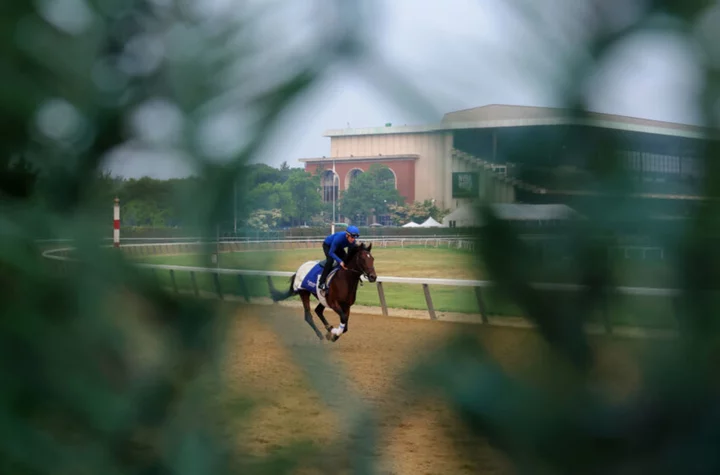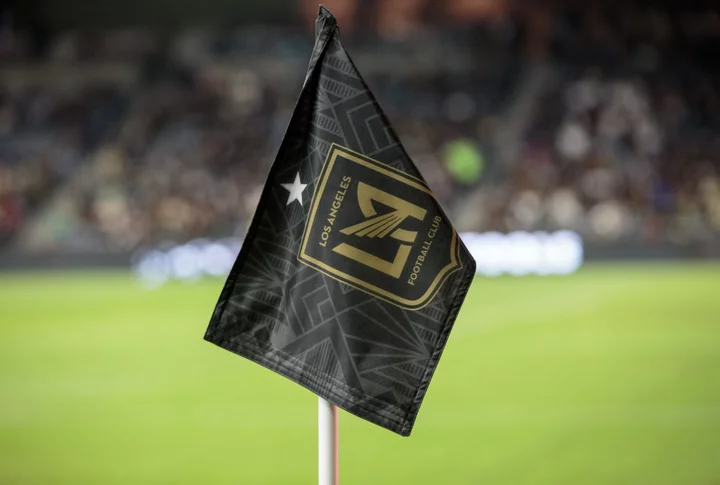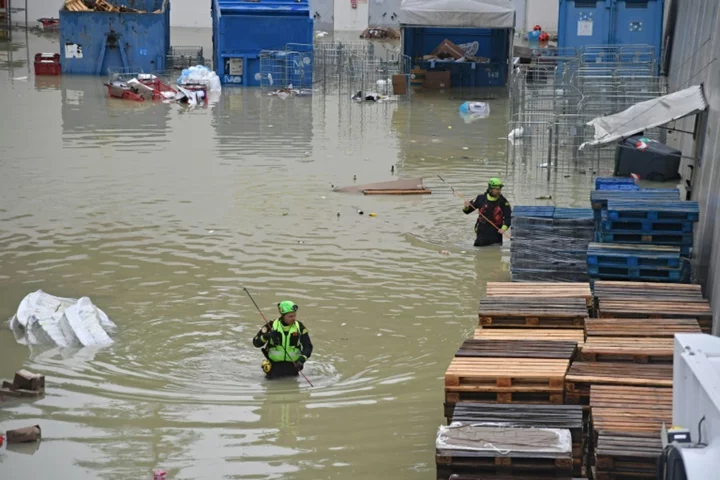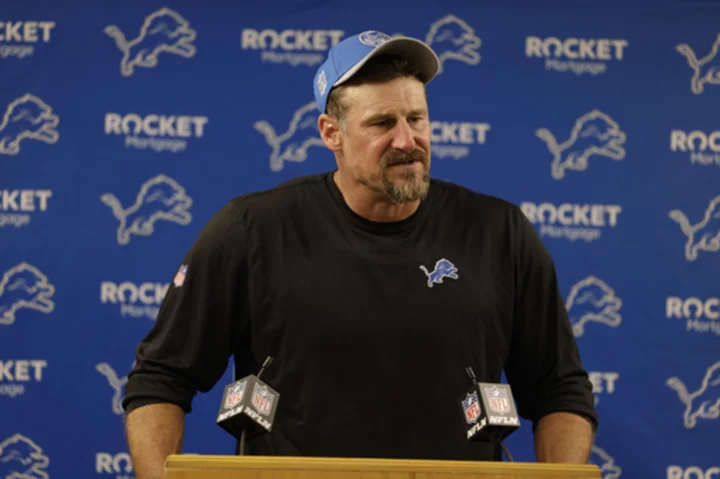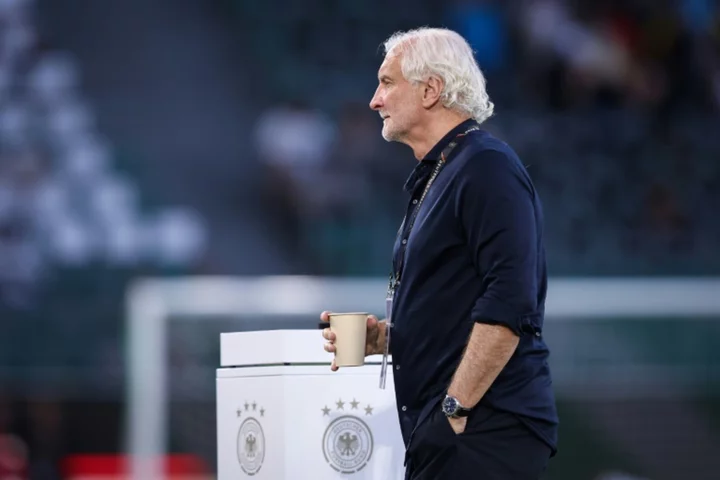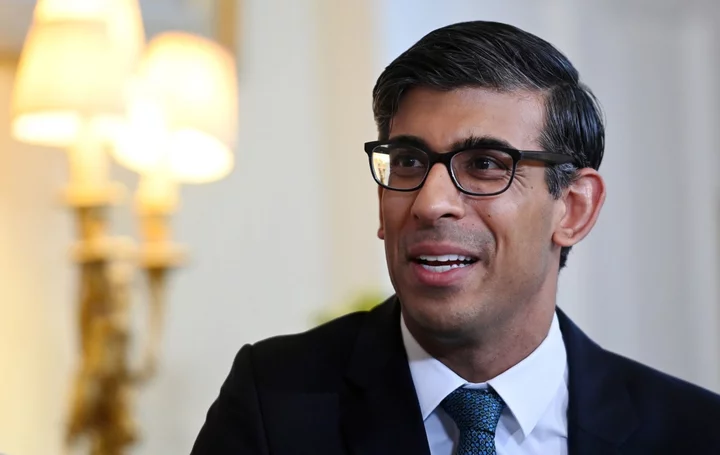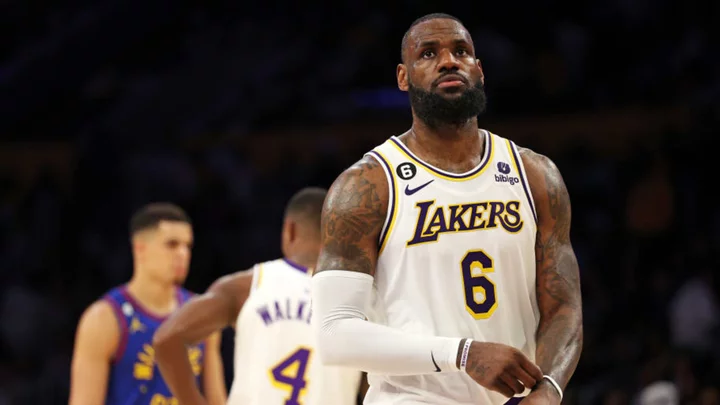England’s impact will last far longer than pain of World Cup final defeat
Views: 3152
2023-08-21 14:50
There remains a space above England’s crest, where that star could have been. It was what Lucy Bronze had dreamt of, ever since the moment where she first played for her country and realised England’s men’s and women’s teams don’t share the same badge. The Lionesses had the chance to change that, the opportunity to add their first star, the moment to capture their 1966. But the wait will now go on. After a historic tournament where the Lionesses again made their mark back home and demonstrated the immense power of what they have created, Sarina Wiegman’s side were left with a devastatingly simple conclusion. As a first Women’s World Cup slipped out of reach, the deflating reality was that, on the day, Spain were just better. And as England’s World Cup came to a close, there was no disgrace in that – certainly not against a side as talented as Spain’s, even with their issues. At full time, as the Spanish players celebrated at one end of the pitch, head coach Jorge Vilda and his staff at the other, Wiegman and her team were a picture of unity in the centre. Even in that moment, they realised they had already managed to achieve something far greater. Wiegman told them they could still be proud, that they had given everything not just in the final but on their journey to reach it. The England manager reminded them of the challenges they had been forced to overcome and the togetherness they had shown to grow through the tournament, right until that final moment. There was pride, too, that the team had given its nation reason to love them even more. “We’re the Lionesses,” Georgia Stanway said afterwards, and that term of itself has become synonymous with their ability to inspire and transcend, to bring a country to a halt and take millions along with them. “We’re not done yet,” Stanway continued. “We’ll continue to break barriers, we’ll continue to push on." This isn’t a team who stands still. The Lionesses have created an identity and image that represents the immense change and progress, and whose performances at the World Cup will result in more. If the impact of last summer’s Euros win is anything to go by, then when the WSL returns there will be bigger attendances, more investment, more growth. Eventually, Mary Earps will get her shirt and when she does it will be another moment to symbolise the power of what the Lionesses have done. And, of course, winning the World Cup would have galvanised that further, but when a team and a manager have a purpose like the Lionesses do then it only becomes a step on the journey. “This group of players are so eager to be successful. We want to grab every moment to be better,” Wiegman said. The World Cup turned out to be the ultimate test of just that, an examination of England’s strength, not that it was ever in doubt. England won fans in a different way to last summer. From the dizzying buzz of the Euros, the Lionesses had to grind it out far away from home in Australia. Wiegman said she had “never faced so many problems” during the World Cup, an admission she made after the Lionesses scraped past Nigeria on penalties in the last-16. From the clarity and continuity of last summer’s Euros, England had anything but at the World Cup and at times were vulnerable to an early exit. Amid the shocks and unpredictability of the group stages, enough teams were succumbing to that particular theme of the World Cup to suggest that England could have quite easily become its latest victim. England’s players had set the bare minimum of the semi-finals yet the way the Lionesses played in their first two matches against Haiti and Denmark suggested even that was a stretch. Yet England managed to overturn it – they didn’t accept their fate and instead found something new, creating a new formation that breathed new life into their campaign. In the knockout stages, they showed resilience and mentality, and in the semi-finals against Australia they produced the performance of their campaign, a gutsy win in the back garden of a traditional sporting enemy, and the sort of performance that the nation back home could be proud of. The regret was they were unable to replicate it in the final, even though Wiegman insisted she had none from a final where Spain ultimately showed their class. It spared the grand inquest into England’s World Cup that would have inevitably followed a defeat to Nigeria in the last-16 or Colombia in the quarter-finals. Even without Beth Mead, Leah Williamson and Fran Kirby, England showed where they stand in the power rankings to reach the final. Defeat there is not the end of anything, rather a continuation of a journey. As for what is next, the answer is invariably more football, yet more opportunities. England will need to perform well in the inaugural Women’s Nations League and reach the final in order to guarantee qualification to next summer’s Olympics in Paris, a competition Wiegman is determined to be at after a miserable experience with the Netherlands at the ‘Covid Games’ in Tokyo in 2021. Then it’s 2025, and the defence of the Euros. As England pick themselves to go again, it will be a priority for the FA that Wiegman is there for the next World Cup. Wiegman’s contract is until 2025 and while she has made it clear that she is happy with England and the support of the team, the Dutch coach will undoubtedly attract interest from elsewhere. The FA would be wise to act swiftly. Certainly, when Wiegman is paid an annual salary of £400,000 to Gareth Southgate’s £5m, it is clear where the FA could make a statement of how much they value Wiegman and the job she has done for English football and the exponential growth of the Lionesses. In the aftermath of another World Cup final defeat, after also losing at that point with the Netherlands in 2019, Wiegman admitted that thinking four years ahead was too far away. But the reality is some players may have already had their last opportunity, particularly Bronze. The right-back had reached the semi-finals in 2015 and 2019, then had the historic high of breaking the barrier and reaching England’s first World Cup final, only for it to be followed by the crushing low of losing the ball in the build-up to Olga Carmona’s goal. It’s the cold reality of World Cup finals, where the opportunity to be champions only comes along every four years. It is exactly why it is the game’s greatest stage and why defeat on it, of being so close but remaining so far away, is the most heartbreaking of all. For Bronze and England the chance to claim the World Cup was right there, and, while the Lionesses may bask in the seismic impact of their achievements back home, it is the thought of that missing star that will remain with them for at least another four years. Read More England suffer World Cup heartache as brilliant Spain show Lionesses what’s missing A change too far? England’s last roll of the dice comes up short How not to win a World Cup: Spain, Jorge Vilda and the story of a complicated victory How not to win a World Cup: Spain, Jorge Vilda and the story of a complicated victory The vital lesson England must take to ‘continue breaking barriers’ England players ‘heartbroken’ after World Cup final defeat to Spain
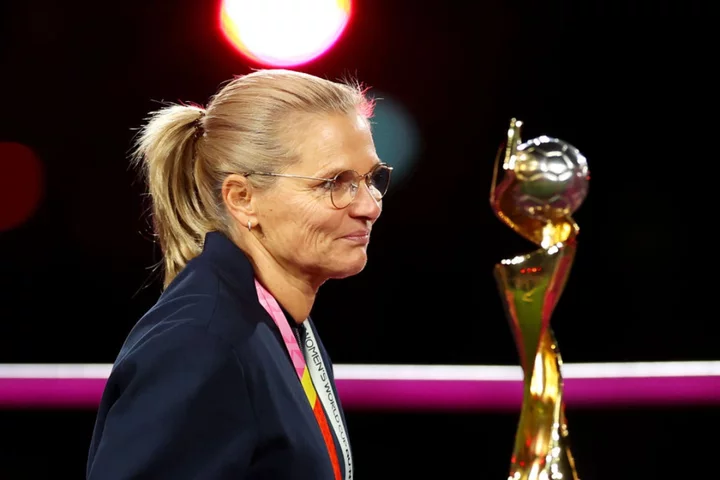
There remains a space above England’s crest, where that star could have been. It was what Lucy Bronze had dreamt of, ever since the moment where she first played for her country and realised England’s men’s and women’s teams don’t share the same badge. The Lionesses had the chance to change that, the opportunity to add their first star, the moment to capture their 1966.
But the wait will now go on. After a historic tournament where the Lionesses again made their mark back home and demonstrated the immense power of what they have created, Sarina Wiegman’s side were left with a devastatingly simple conclusion. As a first Women’s World Cup slipped out of reach, the deflating reality was that, on the day, Spain were just better.
And as England’s World Cup came to a close, there was no disgrace in that – certainly not against a side as talented as Spain’s, even with their issues. At full time, as the Spanish players celebrated at one end of the pitch, head coach Jorge Vilda and his staff at the other, Wiegman and her team were a picture of unity in the centre. Even in that moment, they realised they had already managed to achieve something far greater.
Wiegman told them they could still be proud, that they had given everything not just in the final but on their journey to reach it. The England manager reminded them of the challenges they had been forced to overcome and the togetherness they had shown to grow through the tournament, right until that final moment.
There was pride, too, that the team had given its nation reason to love them even more. “We’re the Lionesses,” Georgia Stanway said afterwards, and that term of itself has become synonymous with their ability to inspire and transcend, to bring a country to a halt and take millions along with them. “We’re not done yet,” Stanway continued. “We’ll continue to break barriers, we’ll continue to push on."
This isn’t a team who stands still. The Lionesses have created an identity and image that represents the immense change and progress, and whose performances at the World Cup will result in more. If the impact of last summer’s Euros win is anything to go by, then when the WSL returns there will be bigger attendances, more investment, more growth. Eventually, Mary Earps will get her shirt and when she does it will be another moment to symbolise the power of what the Lionesses have done.
And, of course, winning the World Cup would have galvanised that further, but when a team and a manager have a purpose like the Lionesses do then it only becomes a step on the journey. “This group of players are so eager to be successful. We want to grab every moment to be better,” Wiegman said. The World Cup turned out to be the ultimate test of just that, an examination of England’s strength, not that it was ever in doubt.
England won fans in a different way to last summer. From the dizzying buzz of the Euros, the Lionesses had to grind it out far away from home in Australia. Wiegman said she had “never faced so many problems” during the World Cup, an admission she made after the Lionesses scraped past Nigeria on penalties in the last-16. From the clarity and continuity of last summer’s Euros, England had anything but at the World Cup and at times were vulnerable to an early exit.
Amid the shocks and unpredictability of the group stages, enough teams were succumbing to that particular theme of the World Cup to suggest that England could have quite easily become its latest victim. England’s players had set the bare minimum of the semi-finals yet the way the Lionesses played in their first two matches against Haiti and Denmark suggested even that was a stretch.
Yet England managed to overturn it – they didn’t accept their fate and instead found something new, creating a new formation that breathed new life into their campaign. In the knockout stages, they showed resilience and mentality, and in the semi-finals against Australia they produced the performance of their campaign, a gutsy win in the back garden of a traditional sporting enemy, and the sort of performance that the nation back home could be proud of.
The regret was they were unable to replicate it in the final, even though Wiegman insisted she had none from a final where Spain ultimately showed their class. It spared the grand inquest into England’s World Cup that would have inevitably followed a defeat to Nigeria in the last-16 or Colombia in the quarter-finals. Even without Beth Mead, Leah Williamson and Fran Kirby, England showed where they stand in the power rankings to reach the final. Defeat there is not the end of anything, rather a continuation of a journey.
As for what is next, the answer is invariably more football, yet more opportunities. England will need to perform well in the inaugural Women’s Nations League and reach the final in order to guarantee qualification to next summer’s Olympics in Paris, a competition Wiegman is determined to be at after a miserable experience with the Netherlands at the ‘Covid Games’ in Tokyo in 2021. Then it’s 2025, and the defence of the Euros.
As England pick themselves to go again, it will be a priority for the FA that Wiegman is there for the next World Cup. Wiegman’s contract is until 2025 and while she has made it clear that she is happy with England and the support of the team, the Dutch coach will undoubtedly attract interest from elsewhere. The FA would be wise to act swiftly. Certainly, when Wiegman is paid an annual salary of £400,000 to Gareth Southgate’s £5m, it is clear where the FA could make a statement of how much they value Wiegman and the job she has done for English football and the exponential growth of the Lionesses.
In the aftermath of another World Cup final defeat, after also losing at that point with the Netherlands in 2019, Wiegman admitted that thinking four years ahead was too far away. But the reality is some players may have already had their last opportunity, particularly Bronze. The right-back had reached the semi-finals in 2015 and 2019, then had the historic high of breaking the barrier and reaching England’s first World Cup final, only for it to be followed by the crushing low of losing the ball in the build-up to Olga Carmona’s goal.
It’s the cold reality of World Cup finals, where the opportunity to be champions only comes along every four years. It is exactly why it is the game’s greatest stage and why defeat on it, of being so close but remaining so far away, is the most heartbreaking of all. For Bronze and England the chance to claim the World Cup was right there, and, while the Lionesses may bask in the seismic impact of their achievements back home, it is the thought of that missing star that will remain with them for at least another four years.
Read More
England suffer World Cup heartache as brilliant Spain show Lionesses what’s missing
A change too far? England’s last roll of the dice comes up short
How not to win a World Cup: Spain, Jorge Vilda and the story of a complicated victory
How not to win a World Cup: Spain, Jorge Vilda and the story of a complicated victory
The vital lesson England must take to ‘continue breaking barriers’
England players ‘heartbroken’ after World Cup final defeat to Spain



